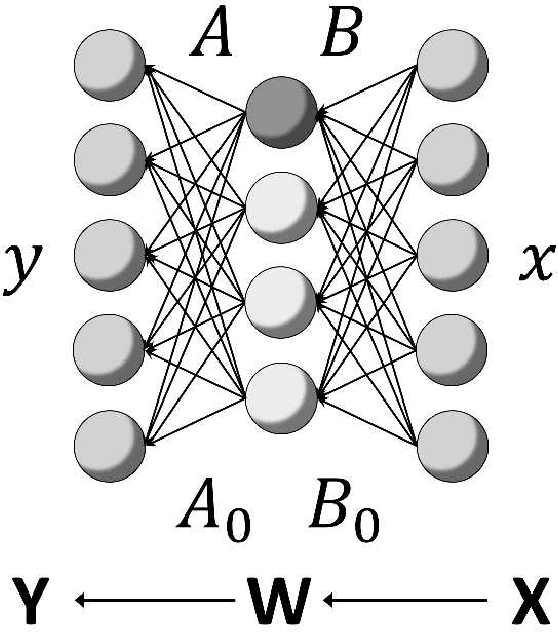Asymptotic Bayesian Generalization Error in a General Stochastic Matrix Factorization
Paper and Code
Jun 23, 2018
Stochastic matrix factorization (SMF) can be regarded as a restriction of non-negative matrix factorization (NMF). SMF is useful for inference of topic models, NMF for binary matrices data, Markov chains, and Bayesian networks. However, SMF needs strong assumptions to reach a unique factorization and its theoretical prediction accuracy has not yet been clarified. In this paper, we study the maximum the pole of zeta function (real log canonical threshold) of a general SMF and derive an upper bound of the generalization error in Bayesian inference. The results give a foundation for a widely applicable and rigorous factorization method of SMF and mean that the generalization error in SMF becomes smaller than regular statistical models by Bayesian inference.
 Add to Chrome
Add to Chrome Add to Firefox
Add to Firefox Add to Edge
Add to Edge